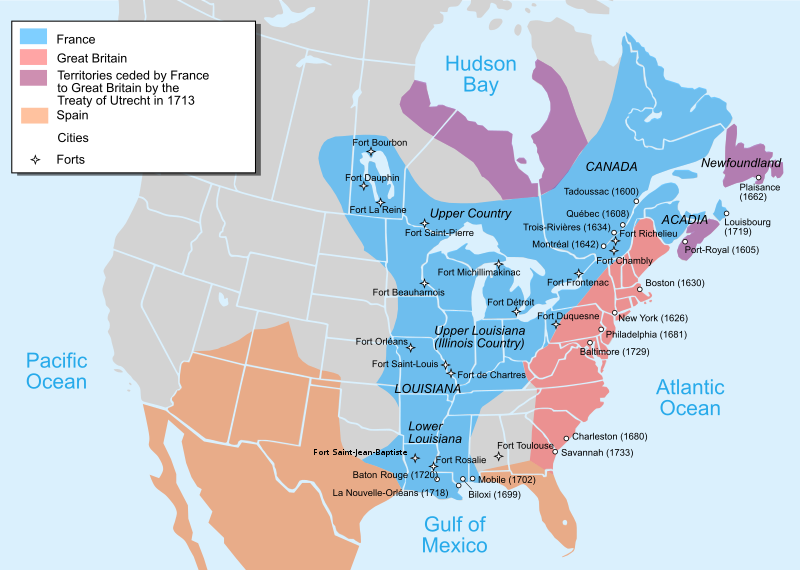(Map from Wikipedia)
Three of you answered this weeks multiple choice question, "Thanks!" As you can see from the map above (French settlement is indicated in blue) the French claimed and settled the Mississippi Valley and Canada. They sent Giovanni da Verrazzano (he was Italian) to explore this region between Florida and Canada. He was to look for a route to the Pacific. Cartier was another French explorer and he attempted North America's first settlement, but it failed.
While the French explored and attempted settlement in North America earlier, remember though, that their settlement was different than that of the English - it was not as dense consisting mostly of male coureurs and voyageurs and of scattered forts. (As a side note the French and Spanish had more of a mission focus than did the English, did, so there were traveling missionaries from both of these European countries. A French missionary that Bennett mentions is Father Jogues - remember the one whose fingers were eaten by the Mohawks?) French settlement was built essentially upon the fur trade. These factors contributed to them having more successful indian relations than much of the English colonies. It was one advantage they had during the French and Indian War (aka the Seven Years War).
Make note of any of this information that either you don't have in your notebook or that you felt like you didn't know well. Place it in your Chapter 1 tab. (Don't, however, just print out this post and put it in your notebook! Pick up your pencil and put it to paper...you'll be more likely to remember it...)
I'll post a new question tonight - take the time to attempt it this week!
